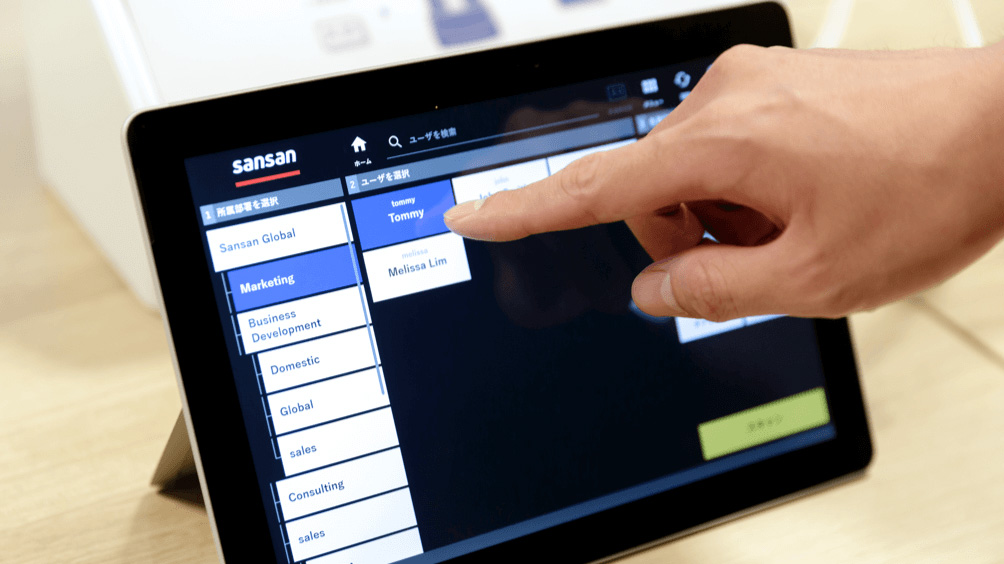Polyplastics Co., Ltd.
- HOME
- Success Stories
- Polyplastics Co., Ltd.
Build a customer database that can be used globally.
Accelerate business worldwide by sharing human networks and information beyond overseas.

Polyplastics Co., Ltd. was founded as Japan’s first dedicated manufacturer of engineering plastics. Today, Polyplastics has expanded its business into 13 countries and 32 locations. It has built a global customer database that can be accessed not only by its domestic branches, but also by ten branches across six countries in Asia. We asked the company about why it decided to introduce Sansan in its overseas branches, and its vision for using Sansan in the future.
Objectives
- Increase productivity through the digitization of business card management operations
- Share contact information across departments and strengthen sales operations
- Use overseas branches’ professional networks and connections as a company-wide asset
Challenges faced
- Business cards and customer data were managed exclusively by individuals
- Could not use Sansan when stationed overseas
- Customer data had to be manually entered into Salesforce, leading to increased workload
Results
- Achieved centralized management of business card information across Asian branches
- Allowed for easy handover of contact assets when dispatched overseas or returning to Japan
- Allowed for integrating and uploading accurate data to Salesforce with a simple scan
Information sharing between departments and overseas offices.
Transform business cards from different countries into corporate assets.
[ Interviewees ]
Mr. Noriyuki Taki
Chief, Greater China Business Unit Chairman
Ms. Kyoko Chikama
Sales Planning Department, Marketing and Sales Division

Creating and utilizing a shared database across countries will be instrumental in promoting company-wide growth in the global market.
– Mr. Noriyuki Taki
Please tell us about how Polyplastics was established and what its business encompasses.
Mr. Taki: As a leading company in the engineering plastics industry, we support manufacturing and production around the world. They’re now used in a wide range of everyday products, from household appliances to packaging for foods and medicines. They’re even used in parts for next-generation communication (5G) devices and electronic vehicles, which have seen increased demand in recent years.
As Japan’s first manufacturer specializing in engineering plastics, we have a special ability to understand the market, gain awareness that we’re creating matchless solutions for our customers, and pride that we’re doing important work for society. Our customers can greatly rely on us.
We’re aiming to be the #1 solution provider in engineering plastics. Backed by our track record and the trust we’ve cultivated, we’re currently developing business at 32 locations in 13 countries, including Europe, North America, and Asia.
At the time you introduced Sansan, what sort of issues were you hoping to resolve?
Ms. Chikama: We’ve been concentrating on a set of improvement initiatives to continue optimizing our operations and improving our workplace. In 2014, when deciding the details of these initiatives for our sales department, we asked ourselves what common challenge everyone in sales faced. This question led us to focus on business card management.
If we could digitize the massive number of cards each employee was personally managing, then we could more easily share our professional contacts and connections and improve our sales performance across the department. We could also reduce the number of personal cabinets in the office that were getting in the way of the open-plan design. This and a myriad of other benefits led us to introduce Sansan.
We looked at many business card management services before unanimously settling on Sansan. The speed and ease with which Sansan reads our business cards was the determining factor. We just place the card in the scanner and tap a button to instantly digitize our business cards. No other service could top Sansan’s performance. When business cards are managed individually, people tend to see them as something they earned, and they want to keep them to themselves. Sansan’s being incredibly easy to use was a key factor in overcoming this and getting people on board.
Everyone was happy about how simple it was to use. Staff who had used another business card management service were particularly impressed by how fast Sansan digitized their cards. When you’ve registered a business card in Sansan, you also get access to the latest news on that company as well as updates on any relevant personnel transfers. This prepares you with important talking points ahead of your next visit to the customer. We immediately recognized how we could strengthen our sales and streamline our information-gathering with Sansan.


How are you currently using Sansan?
Mr. Taki: In my sales work, the greatest value from Sansan came from sharing professional contacts and connections across departments. Previously, I had to start from zero when I was looking for new prospects. Now, I can search with Sansan and find existing contacts within our company. This has dramatically transformed both my productivity and sales performance.
I work directly with the automotive industry at our company. When electric vehicles entered the market, I had to start transacting with companies that traded in electric parts and products. It was a completely new field to me. Being able to connect with other departments’ existing customers in the electric industry at that time was a huge help. If you can know who’s connected to who and how they interacted in the past ahead of your first visit to a company, then you can really lower the bar for that initial transaction. This is incredibly useful in sales.
In the modern business world where industries are changing in many different ways, one department’s existing customers are often becoming the new potential customers of another. The ability to easily access information across departments is one major company-wide benefit that Sansan gave us.

Increasing productivity and sales performance by sharing information across departments. Today, the existing customers of one department are the new customers of another.
– Mr. Noriyuki Taki
What sorts of results have you seen since you introduced Sansan?
Mr. Taki: As the representative of our Chinese subsidiary, I felt compelled to introduce Sansan in China right after I was appointed there. There’s a strong tendency in Chinese business culture to treat customer data as one’s personal property. This kept us from turning business cards our employees held into a company asset. Since I had experienced how useful Sansan was in Japan, I made it my top priority as the head of the Chinese subsidiary to create a database of our employees’ professional contacts that everyone could share. That said, if Sansan didn’t support Chinese language, I wouldn’t have introduced it in China. It was essential for us to digitize information in Chinese.
For example, many Chinese company names have different readings in Chinese and in English. In many cases, it’s not possible to use the English name alone. What’s more, a lot of business cards here are only written in Chinese. It’s also common for local companies to provide business cards only to upper-level management, making the business card exchange in China an essential part of advancing one’s business. The exceptional value of being able to accurately digitize business cards in Chinese was immediately evident to our front-line staff.
We’re now seeing widespread adoption of Sansan at our China offices. Having a shared database with Japan that both sides can freely access has created a company-wide synergy. This is beginning to produce results for both countries.
Recognizing that we could provide this same value to other branches, we introduced Sansan at our South Korea, Thailand, and India branches as well. We haven’t yet introduced the service in the US and Europe, but we have staff stationed in these regions who have a Japanese Sansan account, and that gives us access to all the business card data they have scanned. Now, we can search a company’s name using Sansan and offer our customers in China proposals based on work our group companies have done together in the Japan or US markets. Sansan gives us a record of all these interactions.
The more we build up these worldwide corporate assets, the better we can share and use information and professional connections between all regions. I’m confident that harnessing this potential will lead to new growth for all our branches in the global market.


User requests are applied back into the product, keeping it evolving. Introducing Sansan at our overseas branches has been a major source of support.
– Ms. Kyoko Chikama
Have you seen any other specific advantages?
Ms. Chikama: Japanese staff stationed at our overseas branches generally carry high-ranking positions at our Japan headquarters, in addition to their overseas titles. This means some of the business cards they carry aren’t suitable for sharing company-wide. To manage this type of information appropriately, we limit access of certain customer information to users who have been granted a certain level of permission.
Also, as laws regulating personal information differ from country to country, we can restrict access to data as necessary between our local subsidiaries. We have the ability to flexibly set the parameters for data-sharing at any time, which allows us to adjust accordingly to future changes in the law or in methods of operation. Thanks to this feature, we’ve been able to build and utilize a single global database, while striking a perfect balance between security and usability.
How would you like to use Sansan in the future?
Ms. Chikama: When we first introduced Sansan, we didn’t expect that managing business cards would have a substantial effect on our business itself. Now, we’re able to integrate the information we have digitized to make better use of other platforms, such as Salesforce, and easily capture accurate data on our customers.
At first, Sansan only supported Japanese and English. Now it supports 11 languages, with after-sales support offered in English as well. Thanks to all this, we’ve been able to rely on Sansan as our partner in the introduction and operation of its services overseas. We will continue to consult with Sansan regularly so we can get optimal use of the centralized customer database we’ve built with them. We’ll also be looking forward to our mutual growth in the global market in the coming years.
